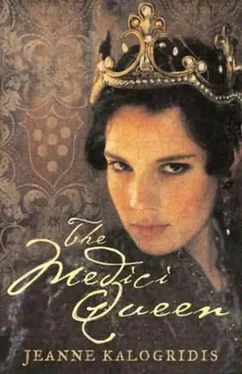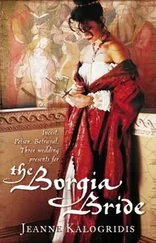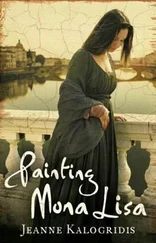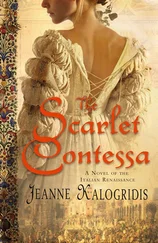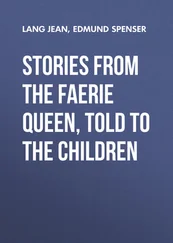Always! I’m writing about another Italian Catherine. Caterina Sforza (1463-1509) was the daughter of the Duke of Milan. Although she was pampered and indulged as a child, she grew up to become one of the most famed Renaissance warriors of all time. She (almost) single-handedly managed to hold off Cesare Borgia’s massive army for months; her bravery and her refusal to behave “as a woman of her time ought” were amazing. She’s still famed in Italy for her daring exploits and lifestyle.
Much of the plot of The Devil’s Queen revolves around astrology and Catherine de’ Medici’s birth chart or natal horoscope, as well as those of her family members. How much of this was historically accurate? How did you do your research?
I’ve collected books about Renaissance magic for twenty-five years, so this was an area already familiar to me. But to do Catherine and the novel justice, I brushed up on Renaissance astrological magic by taking a course in the subject and reading the same authors Catherine would have studied in her day. None of the spells, astrological charts, or references to stars came from my imagination; they were the result of careful research.
I hired two different astrologers to cast the charts of Catherine and her sons, so with luck, they’re completely accurate. (I also cast them myself using my computer-I’m definitely not the math whiz Catherine was!)
It has been said that Catherine’s natal horoscope was one of the worst anyone could possibly have. Can you explain why?
When the first astrologer I visited cast Catherine’s chart, he actually gasped aloud in horror. Just for fun, I’d told him only that the subject was a long-dead queen who was the heroine of my novel. He told me she had a Grand Cross-four planets aligned at ninety degree intervals from each other, so if you connected them with a pencil line, you’d draw a square-armed cross.
Trust me, you don’t want a Grand Cross. You will be up against very, very difficult forces, and have conflict after conflict without being able to resolve it.
The astrologer explained that one planet (Jupiter) represented Catherine, and the others represented three powerful men who thwarted her at every turn. No matter what good she tried to achieve, these three forces undermined her efforts. Tragedy was the inevitable result.
Eerily enough, one of the planets happened to be her husband’s astrological “ruler”-and the two others were the rulers of her two malevolent sons, each of whom became king. Catherine was charming, diplomatic, and exceedingly intelligent-far more so than her husband or sons, whose mental and emotional deficiencies vexed her at every turn. I believe their failings, not Catherine’s, ultimately led to the massacre; Catherine struggled to right their wrongs and prevent civil war, but she was unable to control the situation.
The astrologer also said-without knowing anything else about Catherine’s background-that her chart revealed that she lost her parents in early childhood, and faced a massive catastrophe during her life, as a result of the Grand Cross.
In your research of the astrological charts of Catherine and her family and the superstitions of the time period, what was the most interesting/surprising/shocking thing you learned?
Even though I enjoy reading about Renaissance magic and related matters, I’m a skeptic; I approach it the way an anthropologist would approach learning about the magical beliefs of an ancient culture. But I admit, I was shocked when I came across the link between the star Algol and the St. Bartholomew’s Day Massacre.
“Even though I enjoy…Renaissance magic and related matters, I’m a skeptic.”
Since ancient times, Algol has been associated with the violent shedding of blood on a mass scale; the Chinese called the star “the Heaped-Up Corpses,” and the Arabs called it al-ghul , “the demon” star. Renaissance magicians and modern-day astrologers believed it to be the most evil star in the heavens, predicting great catastrophe.
Algol rose and made an extremely bad aspect with the planet Mars (associated with war and bloodshed) less than an hour before the St. Bartholomew’s Day Massacre began. Catherine surely knew this-she made use of several astrologers, including her favorite, Ruggieri, and always checked their mathematical calculations against hers (which were always right).
Catherine de’ Medici: A Timeline
April 13, 1519 Caterina de’ Medici is born
October 28, 1533 Caterina marries Henri
January 19, 1544 Catherine’s first son, François, is born
March 31, 1547 King François I dies; his son, Henri, becomes Henri II of France
June 27, 1550 Charles-Maximilien is born
September 19, 1551 Edouard-Alexandre is born
May 14, 1553 Marguerite (Margot) is born
July 10, 1559 Henri dies; his fifteen year-old son, François, becomes François II of France
December 5, 1560 François II dies; his brother, Charles, becomes Charles IX of France
August 18, 1572 Catherine’s daughter, Margot, marries the Huguenot king, Henri of Navarre
August 23, 1572 The St. Bartholomew’s Day Massacre begins
May 30, 1574 Charles dies; his brother, Edouard, becomes Henri III of France
January 5, 1589 Catherine dies
Catherine de’ Medici:
Renaissance Queen of France
Leonie Frieda
Renaissance Warrior and Patron:
The Reign of Francis I
R. J. Knecht
Keep on Reading
Beneath the Cross:
Catholics and Huguenots in
Sixteenth-Century Paris
Barbara B. Diefendorf
Memoirs of Marguerite,
Queen of Navarre
1. What did you know about Catherine de’ Medici-either from your own studies, or as portrayed in popular film/television adaptations-before reading The Devil’s Queen ? How, if at all, did this book teach you about, or change your impression of, this important chapter in French history?
2. What do you see as Catherine’s most and least admirable qualities?
3. To what extent do you think Jeanne Kalogridis took artistic liberties with this work? What does it take for a novelist to bring a “real” period to life?
4. Discuss the nature of fact versus fiction in The Devil’s Queen. You may wish to take this opportunity to compare it with other historical novels you’ve read (as a group or on your own).
5. Catherine was orphaned at an early age, raised by an unaffectionate aunt, imprisoned for years, and misused by her cousin, Ippolito. What possible impact could such traumatic events have had on a child’s character? How do you think they affected Catherine?
6. What made Catherine capable of the ritual murder of an innocent? Was she evil at heart, or was her act understandable, if not justifiable?
7. Wicked, bloodthirsty, scheming…many adjectives have been used by historians to describe Catherine de’ Medici’s character. What words would you use to describe her?
8. Take a moment to talk about Catherine’s roles-as a prisoner, a marriage pawn, a princess, a queen, and later a regent-in Renaissance society. How was Catherine different from other women of her era? Do you think she was a “woman ahead of her time”?
9. As an astrologer and practitioner of magic, Catherine believed in fate. Do you believe that she could have taken a different course of action to avoid the St. Bartholomew’s Day Massacre, or was it inevitable? If not, what steps could she have taken to stop it?
Читать дальше
Конец ознакомительного отрывка
Купить книгу
